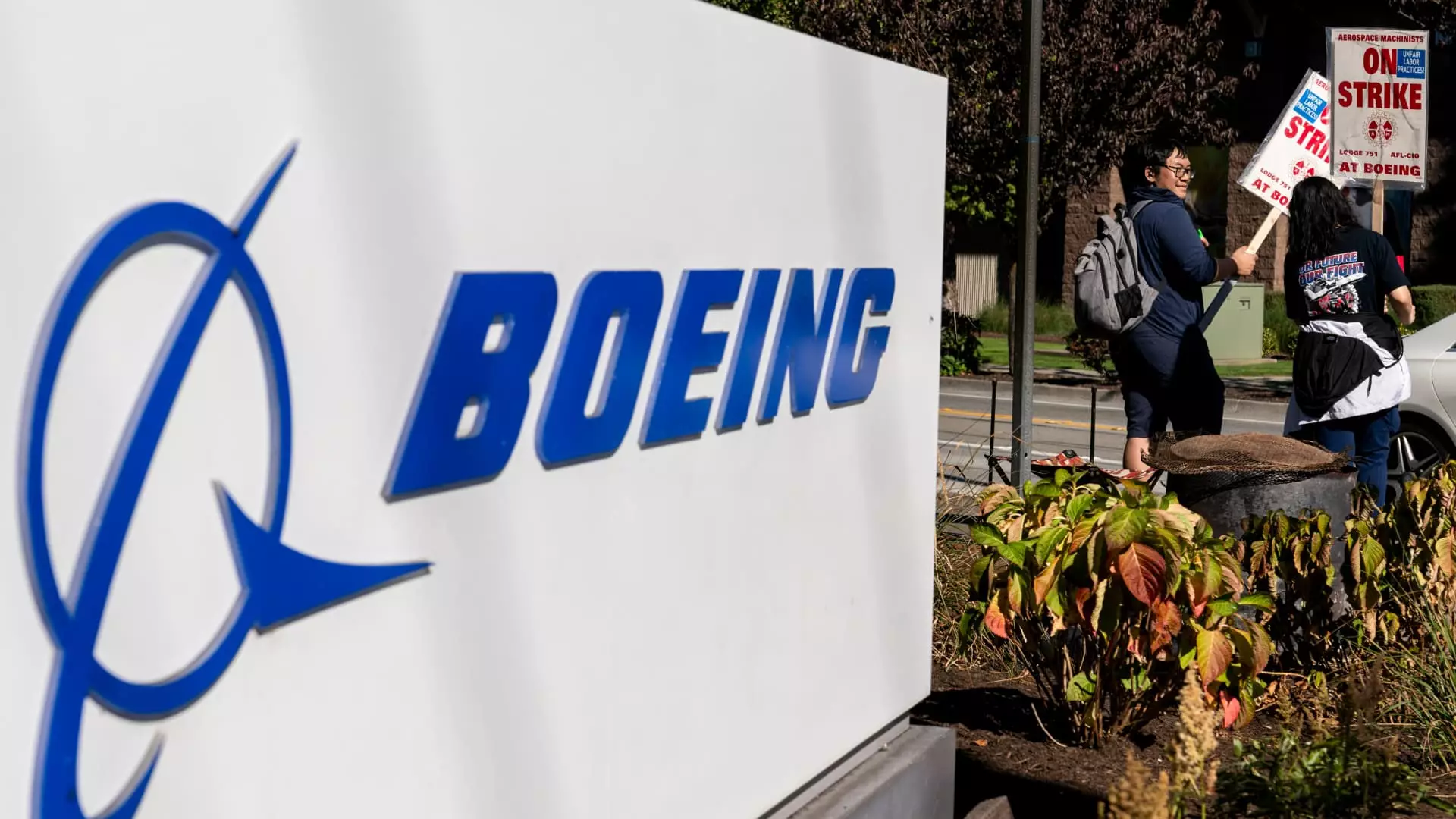Boeing is at a critical juncture as the company welcomes its new CEO, Kelly Ortberg, who is set to communicate his strategic vision to analysts for the first time. This meeting comes at a challenging time, with the aerospace giant grappling with multiple issues, notably a significant labor strike. As thousands of machinists prepare to vote on a new labor agreement, the stakes are exceptionally high. Their decision will undoubtedly influence not only the company’s immediate financial health but also its long-term stability.
In early October, Boeing revealed tentative figures for its third-quarter performance, indicating a slight dip in revenue to $17.8 billion—a decrease of less than 2% compared to the same period last year. However, the company is also facing a staggering loss of $9.97 per share, alongside a cash outflow of $1.3 billion. While the company boasts a cash reserve of $10.5 billion in cash and marketable securities, these numbers raise flags about financial viability in the long run. Analysts predict a loss per share of approximately $10.52 for the third quarter, underlining a narrative of struggle that Ortberg needs to address.
The backdrop to Ortberg’s address is the ongoing strike that commenced on September 13, following Machinists Union members rejecting a contract that proposed substantial pay raises. The newly negotiated proposal offers an even more attractive package, including a 35% raise over four years and enhanced benefits. However, the prolonged strike has had a crippling financial impact, with estimates suggesting the company loses $1 billion each month. Analysts emphasize that reaching an agreement quickly is imperative, not just for Boeing’s well-being but also for the entire aerospace supply chain, which is already feeling the pinch with impending furloughs.
As Ortberg embarks on his mission to rehabilitate Boeing’s reputation, he inherits a legacy fraught with safety concerns and production challenges. The incident involving a door plug defect on an Alaska Airlines flight earlier this year underscores the critical issues at hand regarding safety oversight and consumer trust. In response to these dilemmas, Ortberg has outlined plans to reduce Boeing’s workforce by 10% as part of a broader strategy to streamline operations. He recognizes that these decisions, while difficult, are essential to ensure that Boeing can regain its competitive edge.
The upcoming days will be pivotal for Boeing as the results of the labor vote are anticipated. Success in reaching an agreement with the machinists will play an instrumental role in stabilizing the company and ensuring that it can effectively manage its financial and operational challenges. Ortberg’s comprehensive approach will require not just navigating immediate crises but also fostering a culture of quality and reliability within the organization. As the aerospace industry continues to evolve, the need for strategic foresight and decisive action has never been more critical for Boeing as it attempts to recover and thrive in a demanding global market.


Leave a Reply